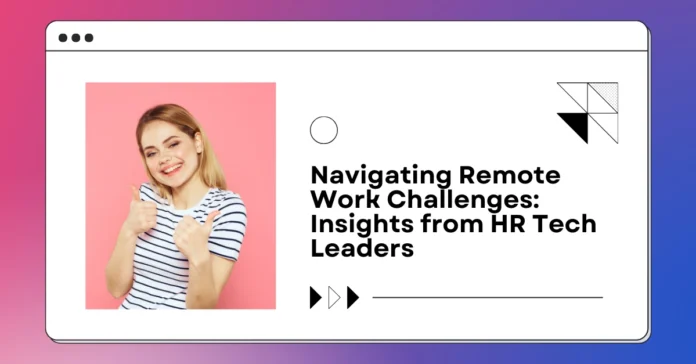Interviewer: Today, we’re speaking with [HR Tech Leader], who has been at the forefront of addressing remote work challenges using technology. Welcome!
HR Tech Leader: Thank you! It’s great to share how tech is helping companies adapt to remote work.
1. Ensuring Productivity in a Remote Environment
Interviewer: One of the biggest challenges with remote work is maintaining productivity. How is HR technology helping companies manage this?
HR Tech Leader: HR tech provides tools for tracking employee performance without being intrusive. AI-powered platforms allow managers to set clear goals, track progress, and ensure alignment even in a remote setting.
Real-time Example:
For instance, Asana and Slack use AI to prioritize tasks and manage workloads efficiently, enabling teams to collaborate seamlessly from different locations. Microsoft Teams integrates productivity tracking tools, providing managers insights into team performance without micromanaging.
2. Maintaining Employee Engagement and Well-being
Interviewer: Remote work can lead to feelings of isolation. How can companies ensure employee engagement and well-being?
HR Tech Leader: HR tech solutions like AI-driven wellness platforms are crucial. These tools monitor employee engagement through surveys, analyze stress levels, and offer personalized suggestions to improve well-being.
Real-time Example:
Zoom and Wellable have been successful in promoting virtual wellness programs, offering features like mindfulness sessions and fitness challenges to keep employees engaged and healthy. Additionally, platforms like Officevibe track employee satisfaction and provide managers with actionable feedback.
3. Ensuring Data Security and Compliance
Interviewer: Remote work comes with concerns about data security. How are companies addressing these issues using HR tech?
HR Tech Leader: HR tech tools prioritize secure data handling and compliance with regulations like GDPR. Cloud-based platforms are using AI to detect potential security breaches, while VPNs and two-factor authentication add layers of protection.
Real-time Example:
Companies like Okta and LastPass offer advanced security solutions for remote teams, ensuring data remains protected. These platforms help businesses meet compliance standards while keeping sensitive information safe.
Interviewer: Thank you for these insights! It’s clear that HR tech continues to be pivotal in overcoming remote work challenges.
Key Takeaways:
- Boosting Productivity: AI-powered tools help track employee performance and manage workloads efficiently in a remote setting.
- Enhancing Engagement: Wellness platforms and employee feedback tools ensure engagement and well-being, preventing burnout.
- Ensuring Security: HR tech provides robust data protection and compliance tools to keep remote work environments secure.

